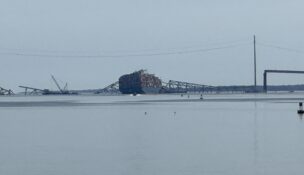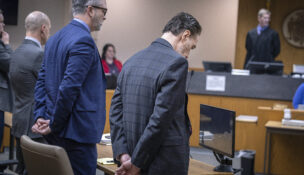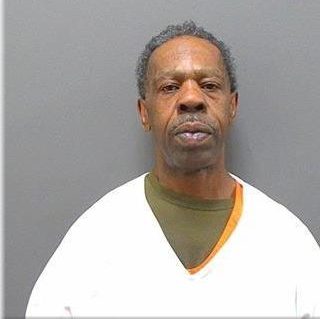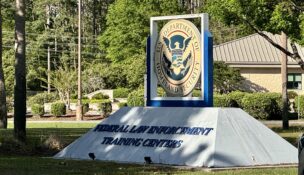Attorneys predict willingness in Capitol to soften state’s mining requirements
By: Jack Zemlicka, [email protected]//March 1, 2011//
Attorneys predict willingness in Capitol to soften state’s mining requirements
By: Jack Zemlicka, [email protected]//March 1, 2011//

Companies are considering mineral mining in Wisconsin for the first time in a decade, but it might take a change in state law to jump-start operations.
Aquila Resources Inc., a Canadian mining company, recently applied to the Wisconsin Department of Natural Resources for exploratory drilling rights for gold in Marathon County, said Philip Fauble, the DNR’s Mining & Beneficial Reuse program coordinator.
And Florida-based Gogebic Taconite LLC bought leasing rights to mine 22,000 acres in Ashland and Iron counties, but has yet to formally file an application for exploratory drilling. Representatives from Gogebic’s office in Hudson and officials from Aquila did not immediately return calls for comment.
If given the green light, the operations’ hundreds of job opportunities would fall in line with Gov. Scott Walker’s job creation goals, said environmental attorney Ted Warpinski of Friebert, Finerty & St John SC, Milwaukee.
“Clearly it would be something this administration would be in favor of,” he said, “and it would certainly make it much more likely that mining would occur.”
But no one has tried to establish a mineral mining operation in Wisconsin since then-Gov. Tommy Thompson signed off in 1998 on changes to state law that set stricter environmental pollution standards for applicants.
One of the biggest hurdles for proposals is a requirement that applicants prove projects will not result in acid runoff to surrounding waterways, said Peter Tomasi, an environmental lawyer with Quarles & Brady LLP, Milwaukee.
“They are probably the most significant environmental permitting requirements for anything in this state,” he said, “even more significant than building a coal plant.”
Since nobody has gone through the permit application process under the new law, Fauble said, it is hard to know to what extent it will hinder proposals.
“The problem is the law has never gone through the entire process of issuing a license,” he said, “so we would need to ask what the intent of the Legislature was when they put the law into effect.”
From start to finish, Fauble said, a mining operation can be authorized in a minimum of two-and-a-half years, depending on the scope of the operation. If they get exploratory drilling approval, companies then have to submit a drilling plan and identify specific locations that do not interfere with wetlands or tribal grounds.
Once a mining company determines the economic viability of a mineral deposit after exploratory drilling, it then has to submit a mining permit application with a risk assessment plan, an environmental impact report and a reclamation plan.
If state law stymies mining project approval, it would not be a surprise if Gov. Scott Walker’s administration is open to change, said environmental attorney Arthur Harrington of Godfrey & Kahn SC, Milwaukee.
“I could see some pressure to change that law given what is going on in Madison now,” he said. “If it’s an economic development issue, then proponents will push to change the law to make it more user-friendly to applicants.”
Walker’s office did not respond to requests for comment, but Warpinski said a move to soften the law to attract mining companies would be consistent with the philosophy of the current administration.
“It would not surprise anybody if there were discussions about that,” he said.
If a company can overcome the law, short of having it modified, that also could prompt renewed interest in mineral mining in Wisconsin, Tomasi said.
“If it can be done,” he said, “I think we’ll see an increase in mining questions that need to be answered.”
Legal News
- FBI launches criminal investigation into Key Bridge collapse
- Man charged in slaying after woman’s leg found at Milwaukee-area park
- Minnesota man guilty in fatal stabbing of teen on Wisconsin river, jury finds
- Wisconsin teen sentenced in bonfire explosion that burned at least 17
- Wisconsin man who broke into home, ate victim’s chicken, slept in victim’s bed, receives prison and jail sentences
- Judge refuses to dismiss Hunter Biden’s gun case
- House passes reauthorization of key US surveillance program after days of upheaval over changes
- Milwaukee Police officer traveling to Georgia training retires before facing discipline
- Evers to ask legislature to approve largest increase in state support for UW System in two decades
- 7th Circuit Court of Appeals proposes new rules
- Federal agencies allege toxic work environment for women in new report
- Wisconsin man sentenced for sex trafficking a woman and a minor online
WLJ People
- Power 30 Personal Injury Attorneys – Russell Nicolet
- Power 30 Personal Injury Attorneys – Benjamin Nicolet
- Power 30 Personal Injury Attorneys – Dustin T. Woehl
- Power 30 Personal Injury Attorneys – Katherine Metzger
- Power 30 Personal Injury Attorneys – Joseph Ryan
- Power 30 Personal Injury Attorneys – James M. Ryan
- Power 30 Personal Injury Attorneys – Dana Wachs
- Power 30 Personal Injury Attorneys – Mark L. Thomsen
- Power 30 Personal Injury Attorneys – Matthew Lein
- Power 30 Personal Injury Attorneys – Jeffrey A. Pitman
- Power 30 Personal Injury Attorneys – William Pemberton
- Power 30 Personal Injury Attorneys – Howard S. Sicula











